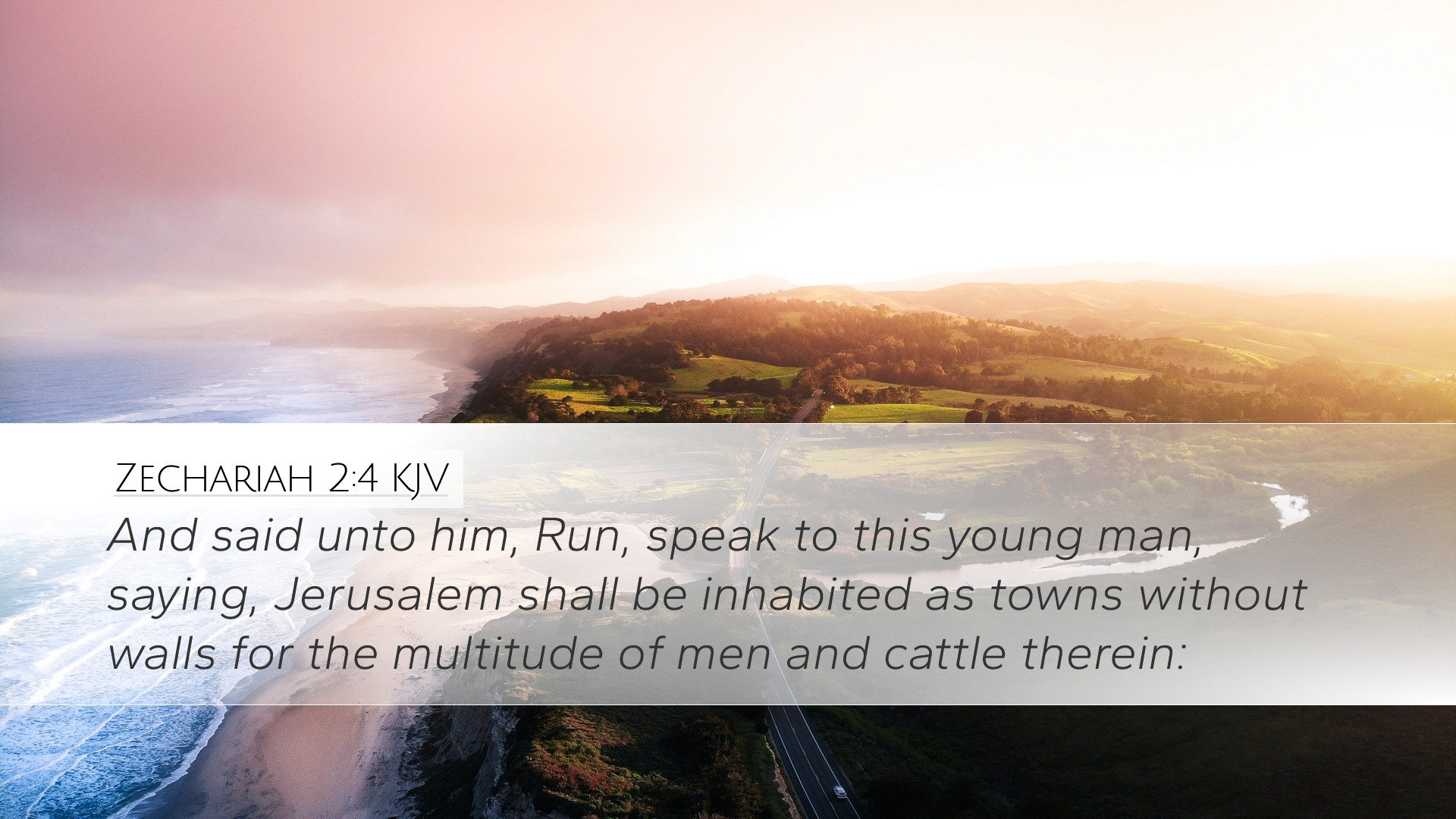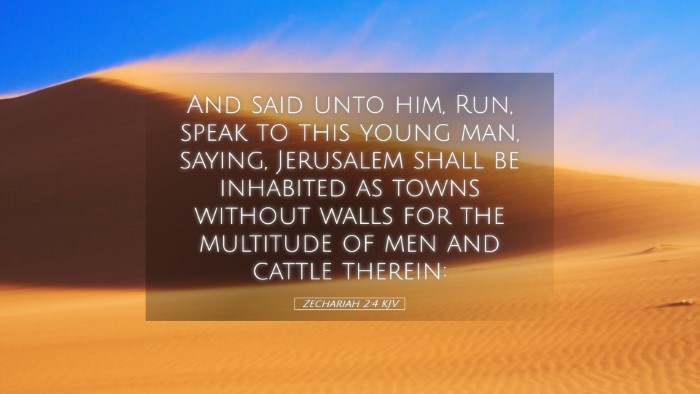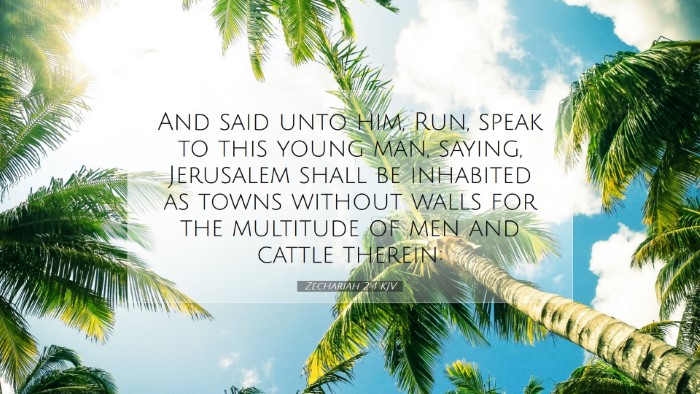Old Testament
Genesis Exodus Leviticus Numbers Deuteronomy Joshua Judges Ruth 1 Samuel 2 Samuel 1 Kings 2 Kings 1 Chronicles 2 Chronicles Ezra Nehemiah Esther Job Psalms Proverbs Ecclesiastes Song of Solomon Isaiah Jeremiah Lamentations Ezekiel Daniel Hosea Joel Amos Obadiah Jonah Micah Nahum Habakkuk Zephaniah Haggai Zechariah MalachiZechariah 2:4
Zechariah 2:4 KJV
And said unto him, Run, speak to this young man, saying, Jerusalem shall be inhabited as towns without walls for the multitude of men and cattle therein:
Zechariah 2:4 Bible Commentary
Commentary on Zechariah 2:4
Zechariah 2:4 states:
"And said unto him, Run, speak to this young man, saying, Jerusalem shall be inhabited as towns without walls for the multitude of men and cattle therein." (KJV)
Introduction
This verse serves as a profound declaration of God's intentions towards Jerusalem, emphasizing expansion, security, and divine protection. As such, it holds significant implications for understanding the nature of God's promise to His people amid adversity.
The Messenger's Task
Zechariah is called to relay God's message to a young man, symbolizing the need for urgent communication of divine truth.
- Symbolic Role: The young man represents the future vitality and hope of Jerusalem. He is pivotal in conveying the message of restoration and security.
- Urgency: "Run" indicates the immediacy of this revelation. The message of hope must be disseminated swiftly to encourage a despondent people.
Jerusalem's Future
The promise that “Jerusalem shall be inhabited as towns without walls” speaks to the transformation and expansion of the city.
- Inhabitance: The phrase indicates a prolific growth in population, resulting in an uncounted multitude of people and livestock.
- Security without Walls: The absence of physical walls indicates not only the peace and security that God provides but also a shift from reliance on physical fortifications to trust in divine protection.
- Spiritual Significance: The metaphor of “towns without walls” underlines that true protection comes from God, suggesting that even in vulnerability, they are secure in His presence.
Insights from Commentators
Several public domain commentators provide additional insights into this verse, elucidating its significance:
Matthew Henry
Matthew Henry focuses on the metaphorical significance of Jerusalem's walls. He posits that the absence of walls does not indicate weakness; instead, it reflects a state of abundant blessing where God's people thrive in security provided by His covenant.
Albert Barnes
Albert Barnes delves into the implications for the people of God. He interprets the prophecy as a sign of the prosperous future awaiting Jerusalem, suggesting that the removal of barriers represents the openness of God's grace and the gathering of nations to worship Him.
Adam Clarke
Adam Clarke notes how the vision of a flourishing, fortified Jerusalem points to the eventual establishment of the New Jerusalem, where divine presence reigns supreme, and all believers are safe. Clarke presents this passage as prophetic not only for the exiles returning from Babylon but for the utmost eschatological fulfillment.
Theological Implications
This verse is pregnant with theological significance, resonating with themes of restoration, divine promise, and the nature of God's kingdom.
- Restoration: Reflects God’s unyielding commitment to restore His people despite their previous disobedience.
- Divine Providence: Showcase God's providential care and plans that transcend human understanding, solidifying faith amongst believers.
- Hope in Adversity: Provides a source of hope for God’s people, signifying that even in trials, His plans ensure a bright future.
Conclusion
Zechariah 2:4 encapsulates a powerful promise from God concerning the future of Jerusalem. For pastors, students, theologians, and Bible scholars, this verse reinforces the conviction that God’s faithfulness transcends circumstances and that His plans for His people are rooted in love and security. The imagery of Jerusalem flourishing without walls is a potent reminder of divine protection, underscoring the essence of faith in God's providential care.


